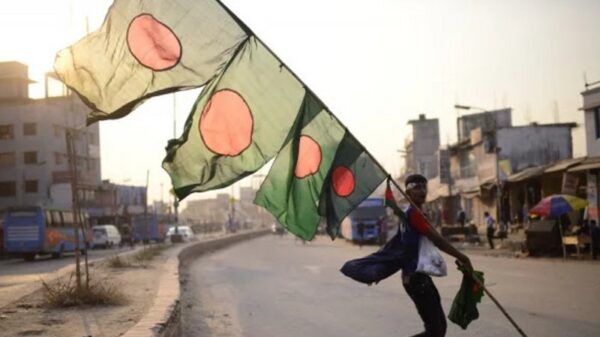writes Chris White from Israel
War is on everyone’s mind in Israel. The generally accepted Mossad operation in Beirut and the deaths reported by the IDF of four Israeli soldiers in Gaza were a prelude to the earlier prediction that something big was about to happen.
Overnight Israeli Defence Force aircraft struck what they describe as terrorist infrastructure in at least seven areas of southern Lebanon. artillery struck several other areas.
The Israeli government message is that: “The IDF will continue to operate against the threat of the Hezbollah terrestrial organisation in order to defend the state of Israel”.
Everyone is apprehensive about what will happen next. Flights other than Israel’s El Al were suspended yesterday but have been restored today.
War has escalated but life in Tel Aviv and Israel generally goes on. As I sit on a roadside terrace people are shopping, walking their dogs and laughing as they go by.
The remarkability of this is the contrast of a peaceful morning and the briefing of a seriously well informed expert. Retired Lieutenant Colonel Sarit Zehavi who founded and runs the top grade Al a research and education centre.
Only yesterday evening she briefed us on the threat of Hezbollah Missiles across the whole of Israel. Supplied by Iran Hezbollah has stocked up to supply what she called it’s “large army”.
Other experts told us that Hezbollah is a terrorist organisation and has a terrorist army. We visited an Iron Dome centre somewhere in northern Israel and were briefed by a team of operators – known as interceptors – on how the country is protected from rocket attacks by rockets know as Iron Dome outlined by Lt Col Zehavi.
But, as she explained, Israel’s Iron Dome network has a huge problem with anti tank missiles. As the Iron Dome operating team explained: They can fly close to the ground and change course”. This problem is principally due to Hezbollah using anti-tank missiles supplied by Iran that fly low and can’t be shot down, a major reason for Israel’s actions in southern Lebanon
Her briefing which covered the scope of Iran’s support and weaponization of Hezbollah supported a comment by another expert that Israel is “the front for the Western World”.
That the war against Hezbollah will escalate further is considered “a given” by everyone who addressed our international press visit. As Lt Col Zehavi explained, huge border areas have been evacuated since October 7 “but missiles are now penetrating all the way from Lebanon to the south of Israel”.
The only question circulating in both the media and Israeli public is: “How soon?”
Word here on the ground suggests a rapid approach. Reports in Israel state that substantial forces have been moved out of Gaza and tanks were today reported to be ‘on the border with Lebanon’.
Now the really big question is how Iran might react. One theme of our many expert briefings is that “not enough was done after October 7, Iran was able to mobilise Hezbollah, and now that needs to be put right”.
As a waitress in a Tel Aviv cafe commented yesterday: “The killings in Beirut and the killing of four soldiers in Gaza convince most of the people I know that this war is escalating”.
Another meeting focussed on defence was cancelled as our press group waited in a conference room two days ago.
No explanation was forthcoming other than that the defence experts “are unable to meet you”. The reason soon became clear.
A briefing prior to this new Israeli operation made it clear that Israel needs to “drive Hezbollah out of southern Lebanon and reach an agreement with the Lebanese government to ensure that it becomes a demilitarised zone.”
As one expert stated: Lebanon, and especially Beirut, was once a pleasant place to be, both parties need to make that possible again”.
A major question is whether both sides can reach agreement. Common sense suggests that they have been negotiating.










































